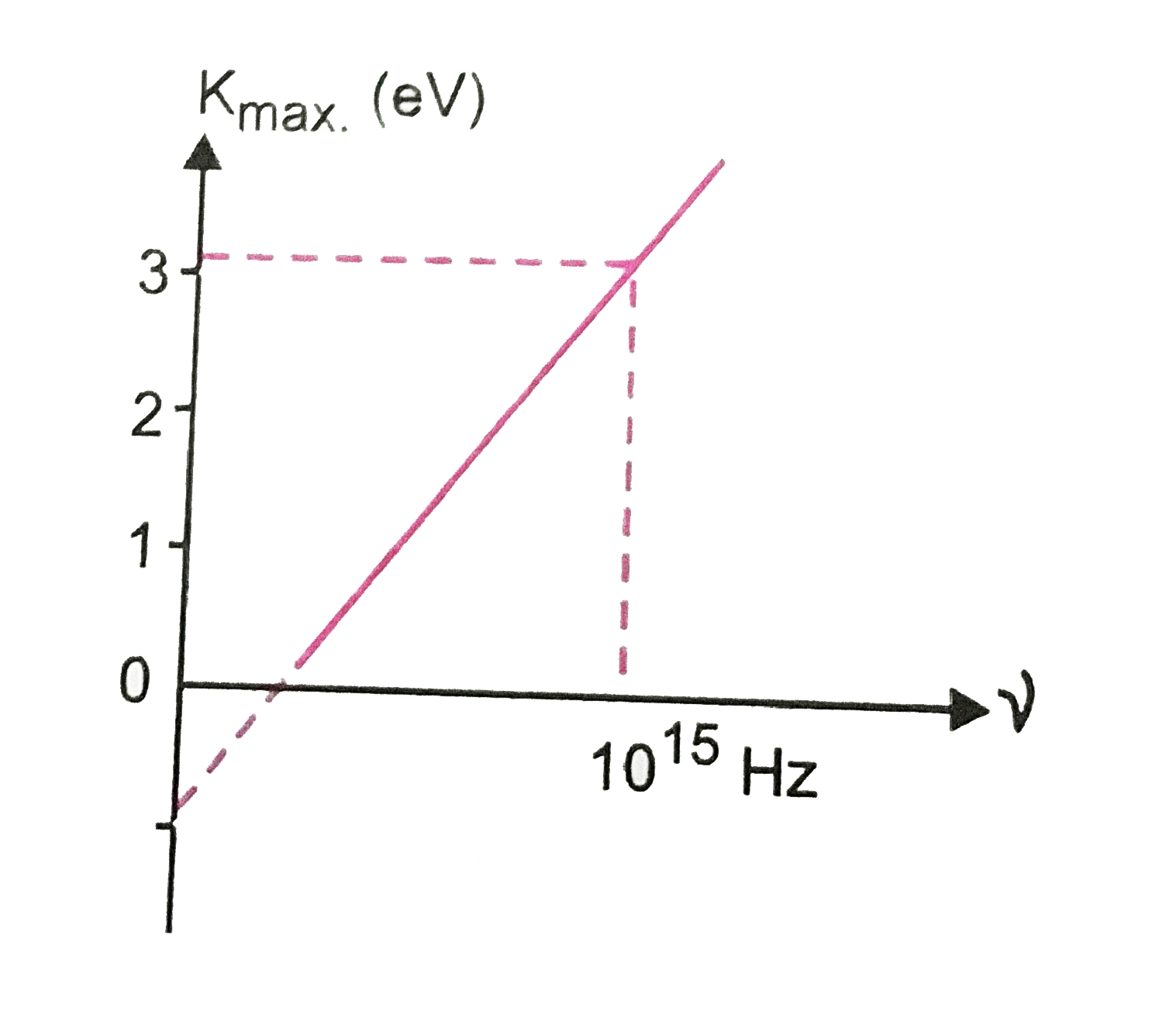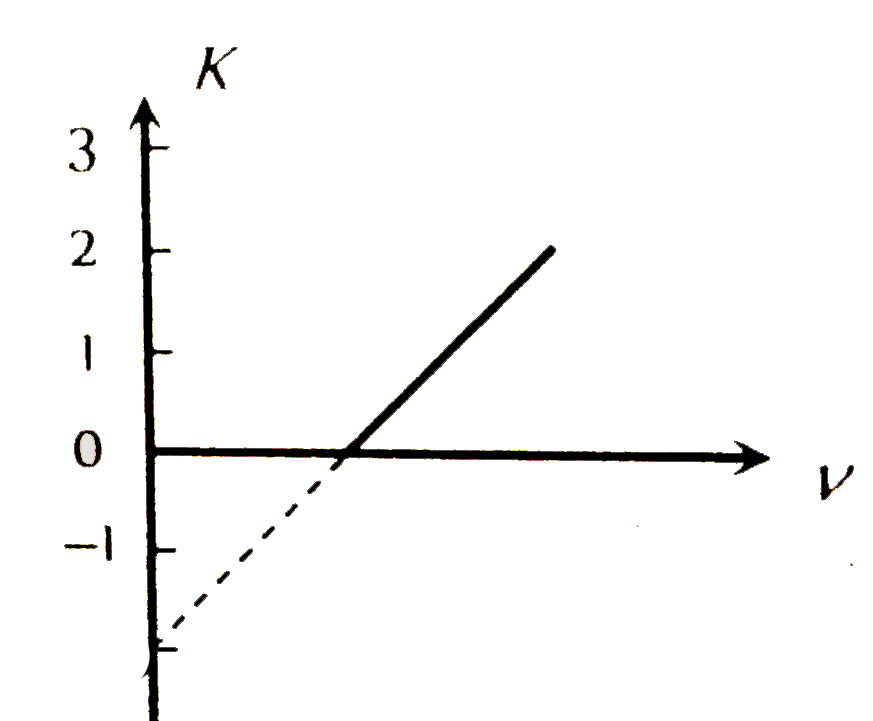represents a graph of most energetic photoelectrons Kmax(in eV) and frequency v for a metal used as cathode in photoelectrons experiment. The threshold frequency of light for the photoelectric emission from the metal is

A
1×1014 Hz
B
1.5×1015Hz
C
2.1×1014Hz
D
2.8×1014Hz
Video Solution
Text Solution
The correct Answer is:D
According to graph,
for υ=1015Hz,
Kmax=3eV=3×1.6×10−19J
According to Einstein's photoelectric equation
Kmax=hυ−hυ0 or hυ0=hυ−Kmax
or υ0=υ−Kmaxh
=1015−3×1.6×10−196.63×10−34
=(10−7.2)×1014=2.8×1014Hz
|
Topper's Solved these Questions
Similar Questions
Knowledge Check
Kmax (in eV) = 3, and frequency of light (in Hz) =1×1015 for a metal used as a cathode in a photoelectric experiment. The threshold frequency of light for the photoelectric emission from the metal is -
A1×1014 HzB1.5×1014 HzC2.1×1014 HzD2.7×1014 HzKmax (in eV) = 3, and frequency of light (in Hz) =1×1015 for a metal used as a cathode in a photoelectric experiment. The threshold frequency of light for the photoelectric emission from the metal is -
A1×1014HzB1.5×1014HzC2.1×1014HzD2.7×1014HzFigure represents a graph of kinetic energy (K) of photoelectrons (in eV ) and frequency (v) for a metal used as cathode in photoelectric experiment. The work function of metal is
 A1 eVB1.5 eVC2 eVD3 eV
A1 eVB1.5 eVC2 eVD3 eV
The energy of the most energetic photoelectrons emitted from a metal target depands upon
View SolutionThreshold frequency for photoelectric effect from a metal surface of work function 4.5 eV is
View SolutionIf the photoelectric work function of a metal is 5 eV , the threshold frequency of the metal is
View SolutionThe photoelectric threshold frequency of a metal is v. When light of frequency 4v is incident on the metal . The maximum kinetic energy of the emitted photoelectrons is
View SolutionA photon of frequency v is incident on a metal surface whose threshold frequency is v0. The kinetic energy of the emitted photoelectrons will be
View Solution